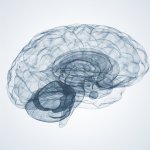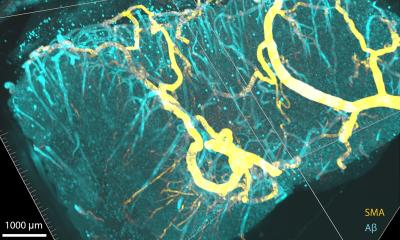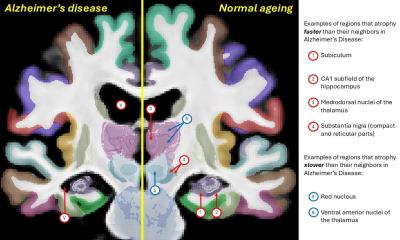Image source: Unsplash/Wilhelm Gunkel
News • Historia dementia
Did the ancient Greeks and Romans have Alzheimer’s?
Medical texts from 2,500 years ago rarely mention severe memory loss, suggesting today’s widespread dementia stems from modern environments and lifestyles, a new analysis shows.
You might think age-related dementia has been with us all along, stretching back to the ancient world. But a new analysis of classical Greek and Roman medical texts suggests that severe memory loss — occurring at epidemic levels today — was extremely rare 2,000 to 2,500 years ago, in the time of Aristotle, Galen and Pliny the Elder.
When we got to the Romans, we uncovered at least four statements that suggest rare cases of advanced dementia
Caleb Finch
The research, led by the University of Southern California (USC) and published in the Journal of Alzheimer’s Disease, bolsters the idea that Alzheimer’s disease and related dementias are diseases of modern environments and lifestyles, with sedentary behavior and exposure to air pollution largely to blame.
“The ancient Greeks had very, very few — but we found them — mentions of something that would be like mild cognitive impairment,” said first author Caleb Finch, a University Professor at the USC Leonard Davis School of Gerontology. “When we got to the Romans, and we uncovered at least four statements that suggest rare cases of advanced dementia — we can’t tell if it’s Alzheimer’s. So, there was a progression going from the ancient Greeks to the Romans.”
Ancient Greeks recognized that aging commonly brought memory issues we would recognize as mild cognitive impairment, or MCI, but nothing approaching a major loss of memory, speech and reasoning as caused by Alzheimer’s and other types of dementia.
Finch and co-author Stanley Burstein, a historian at California State University, Los Angeles, pored over a major body of ancient medical writing by Hippocrates and his followers. The text catalogs ailments of the elderly such as deafness, dizziness and digestive disorders — but makes no mention of memory loss.
Centuries later in ancient Rome, a few mentions crop up. Galen remarks that at the age of 80, some elderly begin to have difficulty learning new things. Pliny the Elder notes that the senator and famous orator Valerius Messalla Corvinus forgot his own name. Cicero prudently observed that “elderly silliness … is characteristic of irresponsible old men, but not of all old men.”
Recommended article

Article • Cerebral insights
The brain: mysterious grey matter
More than 80 billion neurons, trillions of synapses and almost 6 kilometres of neural pathways: The brain is an anatomical masterpiece – and still puzzles science. Keep reading to find out about latest research and therapies of brain diseases.
Finch speculates that as Roman cities grew denser, pollution increased, driving up cases of cognitive decline. In addition, Roman aristocrats used lead cooking vessels, lead water pipes and even added lead acetate into their wine to sweeten it — unwittingly poisoning themselves with the powerful neurotoxin. (A few ancient writers recognized the toxicity of lead-containing material, but little progress was made in dealing with the problem until well into the 20th century. Some scholars blame lead poisoning for the fall of the Roman Empire.)
For this paper, Finch did not just think about the Roman Empire or the Greeks. In the absence of demographic data for ancient Greece and Rome, Finch turned to a surprising model for ancient aging: today’s Tsimane Amerindians, an Indigenous people of the Bolivian Amazon. The Tsimane — like the ancient Greeks and Romans — have a preindustrial lifestyle that is very physically active, and they have extremely low rates of dementia. An international team of cognitive researchers led by Margaret Gatz, a professor of psychology, gerontology and preventive medicine at the USC Leonard Davis School, found among older Tsimane people, only about 1% suffer from dementia. In contrast, 11% of people aged 65 and older living in the United States have dementia, according to the Alzheimer’s Association.
“The Tsimane data, which is quite deep, is very valuable,” Finch said. “This is the best-documented large population of older people that have minimal dementia, all of which indicates that the environment is a huge determinant on dementia risk. They give us a template for asking these questions.”
Source: University of Southern California
03.02.2024





